40 Reasons You Waste Money On Food
This post may contain affiliate links which might earn us money. Please read my Disclosure and Privacy policies hereFood is an essential part of our day-to-day lives. Whether it’s fueling us with the energy to complete daily tasks, satisfying a craving, or simply bringing people together, it should be something that is enjoyed – not wasted!
Unfortunately, according to a recent analysis from Gallup, the average person wastes over $1,800 each year on food – nearly 18% of their total annual grocery expenditures!
Read on to discover just how people are squandering precious dollars and how you can prevent yourself from being one of them!
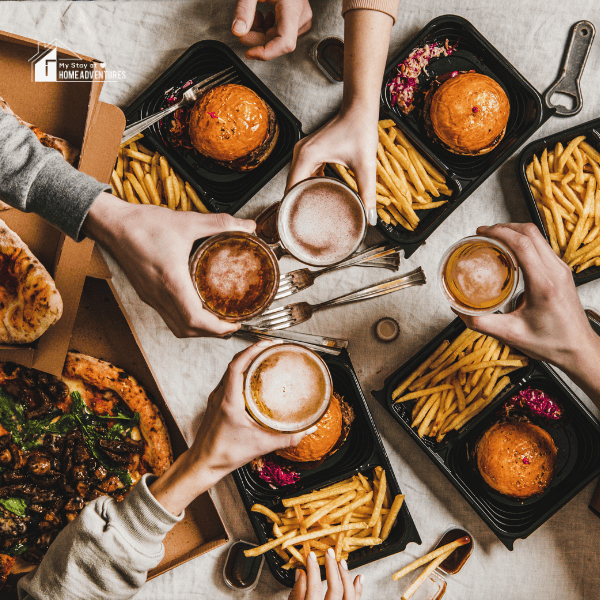
Food is your most significant expense.
If you are struggling with your budget every month and see that your highest budget category is on food, you might have an issue. With inflation in 2023, it is easier than ever to overspend on your food budget.
To save money in this category, you should make a grocery list and stick to it. You should also consider using coupons, looking for sales, and stocking up on items when they are discounted.
You spend more than the average.
Another reason you might waste money on food is that you might be spending more than the average person. In 2023, the average amount a family of four spent on food is $15,000. This does not include dining out, which adds an additional $4,000. If you are spending more than that, it might be time to analyze where your money is going and make changes accordingly.
You eat out too much.
Eating out can add up quickly and become one of the biggest expenses in your budget. Eating out for your meals, snacks and special occasions can easily add up to hundreds of dollars each month which can be a huge waste of money if you are trying to save.
To save money in this category, try cooking at home more often and packing lunch or snacks when you go out. You should also consider using coupons for restaurants and looking for deals.
You buy processed food instead of fresh ingredients.
Processed foods can be convenient but are often much more expensive than fresh ingredients. If you are buying a lot of processed food, it can be an easy way to waste money on food. To save money in this category, try to buy fresh ingredients and make meals from scratch instead. This can not only help you save money but also be healthier.

You shop impulsively.
Impulse shopping can be a serious problem when it comes to food. Impulse purchases often lead to overspending and buying things you did not plan to purchase. To save money in this category, try to limit impulse shopping by planning your meals for the week and making a grocery list before heading out. This can help you stick to your budget and avoid wasting money on excess food.
You go shopping hungry.
This is a classic mistake that many people make when shopping for food. When you go grocery shopping while hungry, it is easy to overbuy and purchase more than you need. To avoid this, try eating a snack before grocery shopping or make a list so that you are not tempted to buy things impulsively.
You don’t use leftovers.
If you cook food for dinner but don’t use the leftover ingredients or portions of meals, it can cost you more in the long run. To avoid this, try to plan meals that you can use leftovers for or freeze them for future meals. This can save money and reduce food waste in your home.
You don’t shop around for deals.
Price comparisons are key when it comes to saving money on food. If you don’t take the time to shop around for deals, you might be missing out on great savings. To save money in this category, compare prices at different stores and look for coupons or discounts when available.
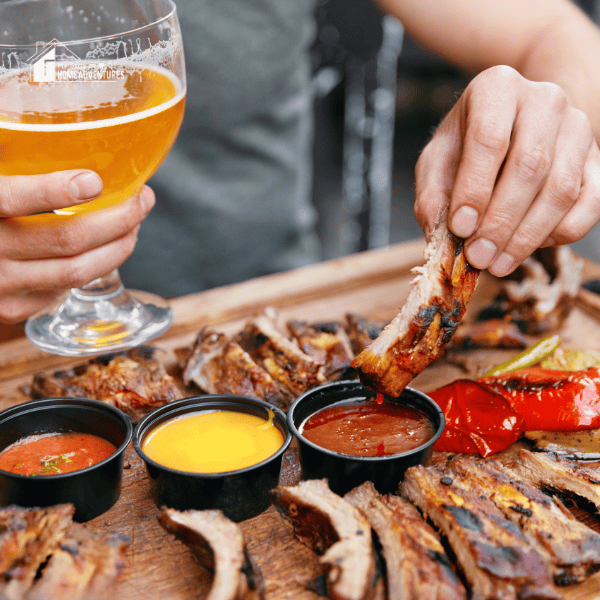
You overbuy vegetables.
Vegetable waste happens, and it happens more frequently than you might think. To avoid this, make sure to buy only what you need and plan meals accordingly. Try buying frozen vegetables to prevent your fresh produce from getting spoiled fast. They are usually much cheaper and have a longer shelf life than fresh vegetables.
You don’t buy at ethnic food stores.
Ethnic food stores are often much cheaper than mainstream grocery stores. If you don’t take the time to look for deals at these specialty stores, you might be missing out on great savings. Here’s a fact for you, ethnic food stores such as Asian markets, Spanish stores, Mexican stores, etc., have lower prices for fresh food and ethnic foods.
When you shop at a big chain supermarket, you are paying for this:
- Worker’s salaries
- Training for workers
- Running the store
- Store use of high-end equipment
- Future renovation of the store
- Community give-back programs
A bigger chain store charges more because it has expenses to pay vs. an ethnic market. Their vegetables and food come from their warehouse and their company trucks.
They use high-tech equipment to scan their products. They even use more expensive equipment to unload the product and stock it.
We make a run to the city to hit the Latin market and get great deals on produce and other items that are sometimes double, even tripled, the prices if we buy at a local chain store.
You don’t have a food budget at all.
Having a food budget can be the key to successful meal planning and grocery shopping. Having a budget will help you stay on track when it comes to spending money on food. Without one, it is easy to go over your budget and waste money on unnecessary purchases. Make sure to set a realistic food budget for yourself and stick with it.
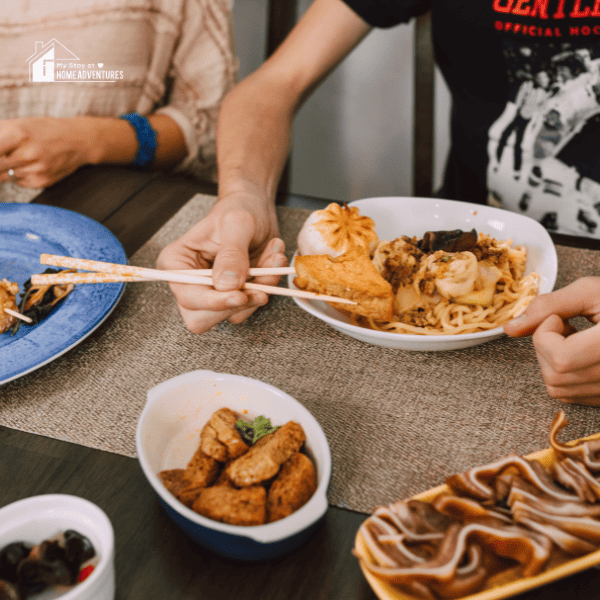
You don't buy seasonal items.
Seasonal produce is usually cheaper and of better quality than items that are out of season. If you don’t take the time to buy seasonal items, you could be missing out on great savings. To save money in this category, try buying local produce that is in season or frozen fruits and vegetables when available.
You focus too much on convenience foods.
Convenience foods like frozen dinners and snacks are often more expensive than regular meals and snacks. If you rely heavily on these types of items, it can add up to a lot of wasted money over time. Try meal prepping ahead of time or cooking from scratch to save money in this category.
You don't take advantage of sales.
Sales and discounts are a great way to save money on food, but if you don’t pay attention to them, they won’t do you any good. To make sure you get the most out of sales, always read the store flyers or check online for sales and discounts before shopping. You might be surprised at the savings that await you!
You don't read expiration dates.
Read the expiration dates on all food items before you buy them. Not reading the expiration dates can lead to buying outdated or expired food items, wasting money. To save money, always check for the expiration date and avoid buying anything that has already expired.
You don't inventory your pantry and freezer.
Take stock of what you have in your pantry and freezer before you go shopping. If you don’t, you might buy items you already have or won't use in time before it expires. Taking the time to inventory your pantry can help save money and prevent waste.
You don't store your food properly.
Properly storing your food is essential to preventing waste. If you don’t store your food correctly, it might end up spoiling before you get a chance to use it. Always check the recommended storage methods for different types of food and make sure to follow them. Doing so will help save money in the long run.
You don't meal plan.
Meal planning is an essential part of frugal grocery shopping. It helps you determine what you need to buy and when so that you won’t buy items that will go to waste. Meal planning also allows you to take advantage of sales and discounts effectively.
You buy items on sale that your family doesn't eat.
Just because something is on sale doesn’t mean that you should buy it. If no one in your family eats the item, then it’s a waste of money, and you should avoid buying it. Whenever possible, try to stick to buying items that your family will actually eat so that you won’t be wasting money on items that will get thrown away.
You buy too much at once.
You might see a great deal or just simply enjoy the product, but buying too much at once can actually be wasteful. It’s best to buy only what you need and will use at the time so that nothing goes to waste.
You don't use a list.
Using a list when you go grocery shopping is essential if you want to save money. A list will help keep you on track and ensure you don’t buy items you don’t need or won’t use. Without a list, it’s easy to get distracted and buy more than you need, leading to more waste.
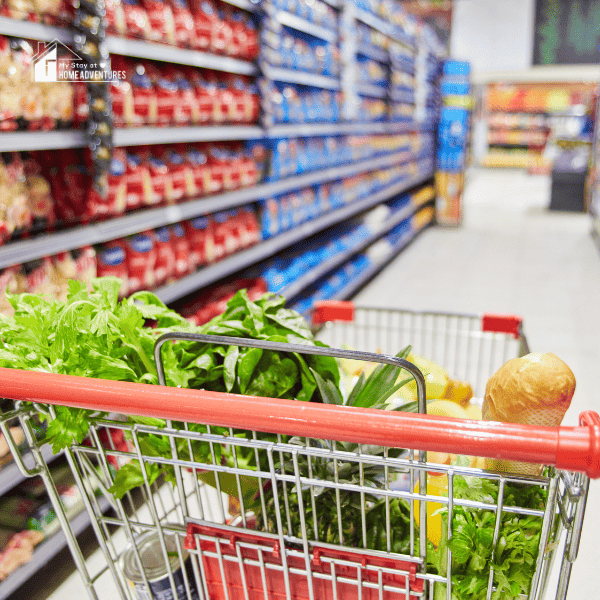
You don’t shop the ads.
Most stores have weekly ads that list their current sales and discounts. Shopping these ads can help you save money on food and ensure you get the best deals available. Don’t forget to check for store coupons as well, as they can provide additional savings.
Don’t use money-saving apps.
There are many apps available that can help you save money on food. These apps provide coupons and discounts, alert to sales, and help you with the best deals. By using apps, you can ensure you’re getting the out of your money for groceries.
You don't check the unit price.
When you’re shopping for groceries, don’t forget to check the unit price of each item. The unit price is the price per ounce or pound, so it can help you determine which size is the best deal. Comparing unit prices can also help you decide what brand to buy and whether a sale is worth it.
You don't know rock bottom prices.
Knowing the rock-bottom price of an item can help you save money when grocery shopping. Rock bottom prices are the lowest prices that store offer for certain items, so if you know what they are, you can get the best deals.
You don't shop around for better prices.
Grocery stores vary in their prices for certain items, so it pays to shop around. Price compare between different stores and make sure you’re getting the best deal possible. You might even be able to buy items in bulk at one store and get a better price than buying individual items at another store.
You don't use coupons.
Coupons can help you save a lot of money on food, so it’s worth searching for and using them. Look for coupons both online and in newspapers, as well as store apps to find extra savings.
You don't compare prices online.
Online grocery stores can be cheaper than physical stores, so make sure you check them out when you’re shopping for groceries. Compare prices between online and physical stores to ensure you get the best deal.
You don't buy store brands instead of name brands.
Store brands are usually cheaper than name brands, but they can be just as good in terms of quality and taste. Consider buying store brands for items that you know your family will enjoy.
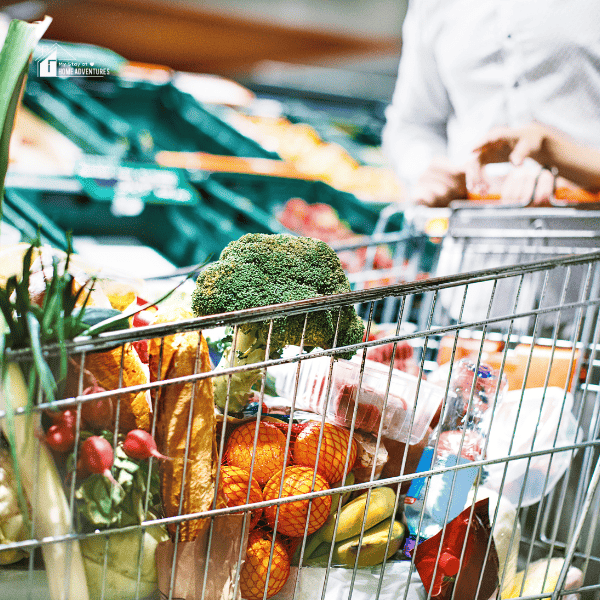
You panic shop.
Panic shopping can lead to overspending and food waste, and here's why: When you panic buy, you tend to buy more than you need and then throw away unused items once they go bad. Take your time when shopping for groceries, and make sure you’re not buying too much of anything.
You don't read the labels.
Reading ingredient and nutrition labels is a great way to save money and make sure you’re buying the right types of food. For extra savings, look for labels that indicate organic, non-GMO, or gluten-free items.
You don't know the store layout.
It pays to know the store layout when you're shopping for groceries. This will help you get in and out of the store faster and ensure you don’t miss any great deals.
You focus on buying cheap over quality.
You will waste money on food by focusing on buying cheap items instead of quality ones. Quality ingredients and products may cost more, but they will last much longer and provide better nutrition for you and your family.
You don't use cash-back rewards.
Many stores offer cashback rewards programs that let you earn money on the groceries you buy. This can be a great way to save money and get the most out of your grocery budget.
You don't buy in bulk.
Buying in bulk can be a great way to save money on food. Check with warehouse stores like Costco or Sam’s Club for big savings on items like canned goods, frozen foods, and other staples.
You don't use store reward cards.
Many stores offer loyalty or reward cards that can help you save money. Sign up for the cards, and you’ll get access to extra savings and discounts on your purchases.
You visit the grocery store daily.
Frequent trips to the store can lead to overspending, so make sure you plan your grocery list in advance and try to stick with it. A clear shopping list will help you stay focused on your needs and avoid unnecessary purchases.
You don't check your receipt for errors.
Always double-check your receipt after grocery shopping. This will help you ensure that the items on the receipt match what’s in your cart and that there are no errors with pricing or discounts.

You don't negotiate at a farmer's market.
Farmer’s markets are a great way to get fresh, local produce at a good price. Don’t hesitate to negotiate with the sellers for better prices or discounts on bulk orders.
You are throwing food away constantly.
Food waste is one of the biggest culprits when it comes to wasting money on food. To avoid throwing away uneaten food, make sure you only buy what you need and use leftovers for later meals.
Wasting money on food is a common problem, but it doesn’t have to be. With a bit of planning and effort, you can save money and get the most out of your grocery budget. Follow these tips to ensure you don’t waste money on food next time you go shopping!

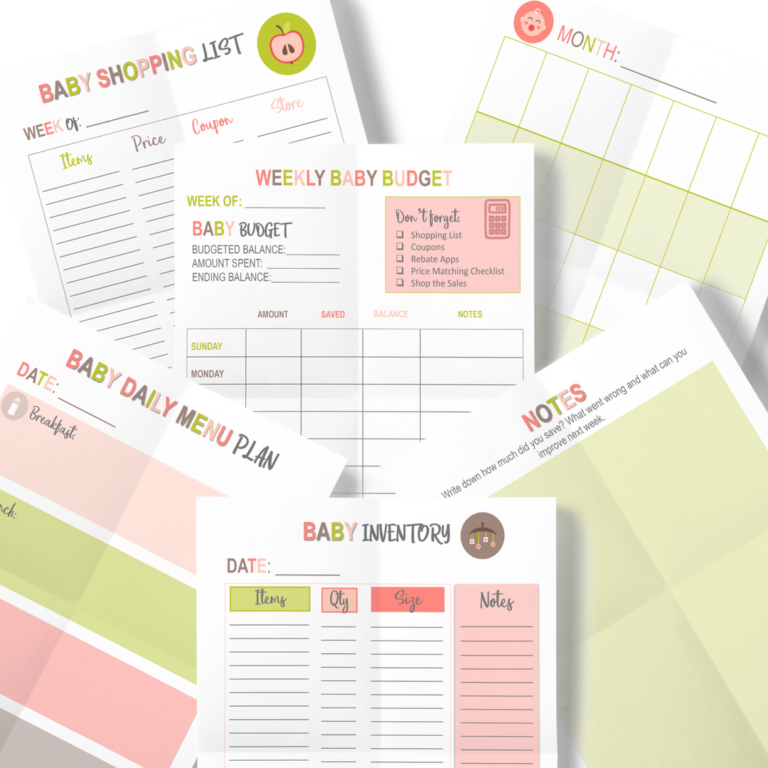


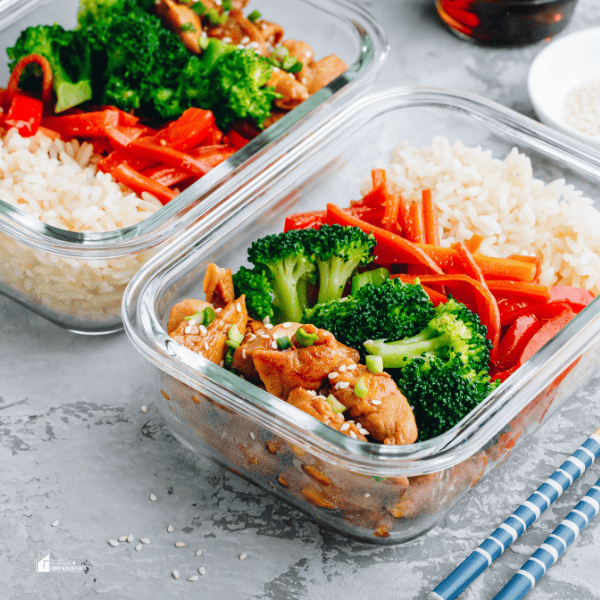

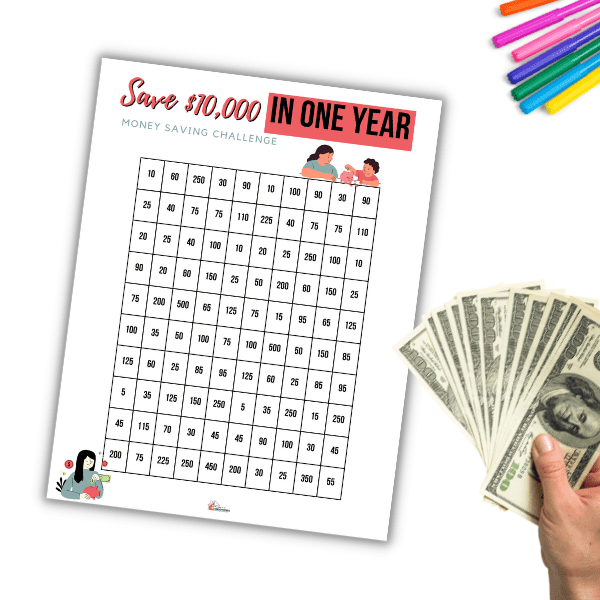
12 Comments